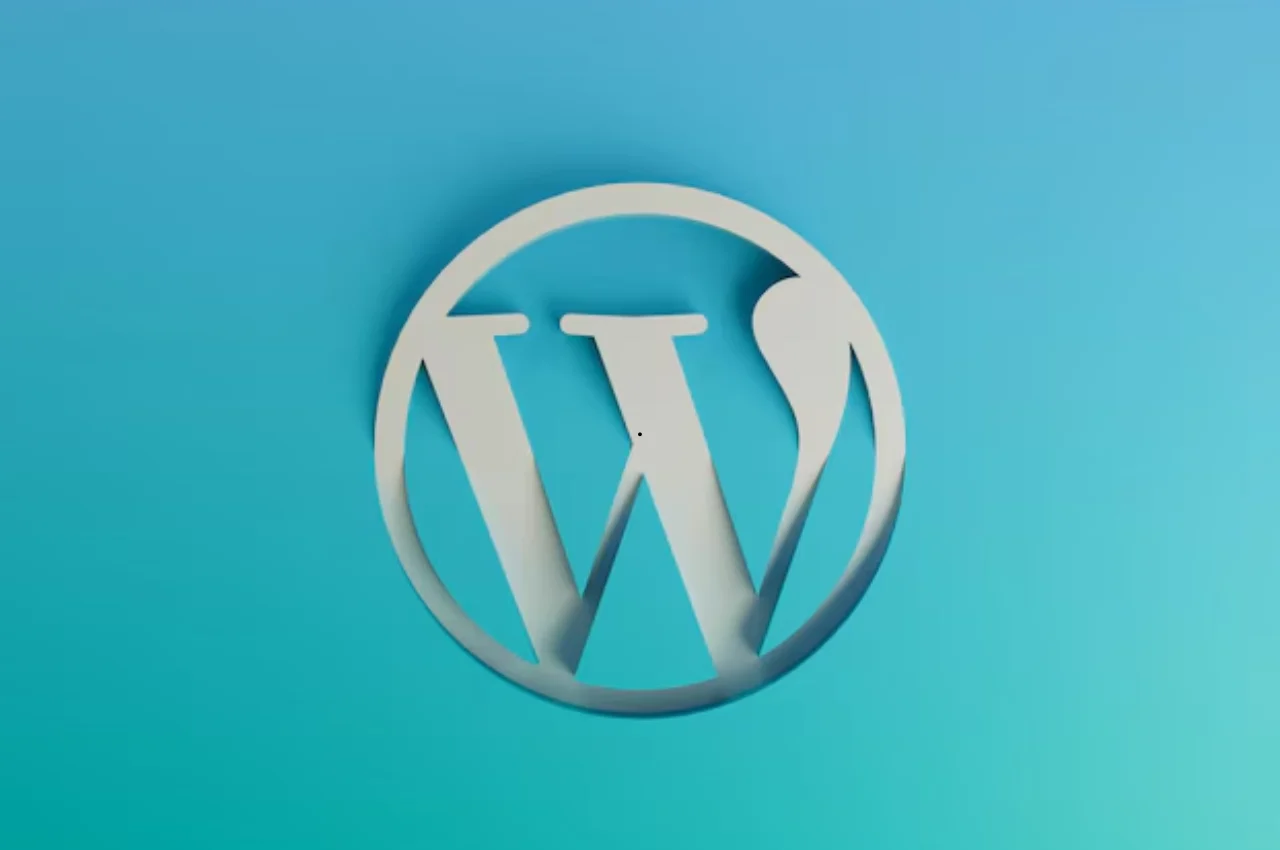WordPress is good for SEO because it offers a range of plugins and tools to optimize your site. It provides a user-friendly platform for creating SEO-friendly content, but success depends on how you utilize these features.
WordPress allows for easy implementation of SEO best practices, making it a good choice for improving your website’s search engine rankings. When it comes to choosing a platform for your website, the impact on SEO is a crucial consideration. WordPress, one of the most popular content management systems, has been widely praised for its SEO capabilities.
With its user-friendly interface and a plethora of SEO plugins, WordPress provides a solid foundation for improving your site’s visibility on search engines. However, simply using WordPress does not guarantee SEO success; it’s essential to understand and implement SEO best practices to fully optimize your site for search engines. We will explore the advantages and potential drawbacks of using WordPress for SEO and provide insights into how you can leverage its features to improve your site’s search engine rankings.
Table of Contents
Understanding WordPress
WordPress is generally considered good for SEO due to its user-friendly interface, customizable themes, and numerous plugins. However, it is important to optimize your content, use SEO-friendly URLs, and prioritize site speed to fully benefit from WordPress’s potential for SEO.

Understanding WordPress WordPress is a popular content management system (CMS) that powers more than 40% of all websites on the internet. It is an open-source platform that allows users to easily create, manage, and publish content on their websites. However, when it comes to SEO, there are some advantages and limitations of using WordPress that you need to be aware of. In this article, we’ll explore these factors in detail.
What is WordPress
WordPress was launched in 2003 as a blogging platform but has since evolved into a full-fledged CMS. It is free to use and offers a wide range of themes and plugins that can be used to customize the website’s design and functionality. WordPress is also highly scalable, making it suitable for both small and large websites.
Advantages of using WordPress
One of the biggest advantages of using WordPress is its SEO-friendly nature. WordPress is built with clean and structured code, making it easy for search engines to crawl and index the website’s pages. Additionally, WordPress offers several plugins, such as Yoast SEO and All in One SEO Pack, that can be used to optimize the website’s content for search engines. Another advantage of using WordPress is its user-friendly interface. With WordPress, you don’t need to be a technical expert to create and manage your website. The platform offers a simple and intuitive dashboard that allows users to easily add pages, posts, and media to their website.
Limitations of using WordPress
While WordPress offers many advantages, there are also some limitations to using the platform. One of the biggest limitations is its vulnerability to hacking and security breaches. Since WordPress is an open-source platform, it is susceptible to attacks from hackers who can exploit vulnerabilities in the code. Another limitation of using WordPress is its performance. WordPress websites can be slow to load, especially if they are not optimized for speed. This can have a negative impact on SEO, as search engines tend to favor fast-loading websites.
In conclusion, while WordPress offers many advantages for SEO, there are also some limitations to using the platform. It is important to weigh these factors carefully when deciding whether or not to use WordPress for your website.
SEO Basics
What is SEO? SEO stands for Search Engine Optimization. It is the practice of optimizing a website to improve its visibility and ranking on search engine results pages (SERPs).
Importance of SEO for Websites
SEO is crucial for websites as it helps in attracting organic traffic, increasing visibility, and establish credibility. It is a cost-effective way to reach potential customers and drive conversions.
Factors Affecting SEO
- Content quality and relevance
- Keywords and their placement
- Site structure and navigation
- Backlinks and external references
- Page load speed and mobile-friendliness
WordPress and SEO
WordPress is a powerful content management system that can be optimized for SEO. While there are some drawbacks, such as slow loading times or poor coding practices with some themes and plugins, WordPress is generally considered good for SEO due to its flexibility, ease of use, and a large community of developers and users.
WordPress and Its Impact on SEO
WordPress is one of the most popular content management systems (CMS) available, and it has gained immense popularity for its ease of use and versatility. But what about its impact on SEO? Let’s explore how WordPress can positively or negatively affect your website’s search engine optimization efforts.
WordPress SEO Plugins
When it comes to optimizing your WordPress website for search engines, plugins play a crucial role. WordPress offers a wide range of SEO plugins that can help you enhance your site’s visibility in search results. Some of the popular plugins include Yoast SEO, All in One SEO Pack, and Rank Math. These plugins provide valuable features like keyword optimization, XML sitemap generation, meta-tag customization, and content analysis. By utilizing these plugins effectively, you can improve your website’s SEO performance.
Common SEO Mistakes in WordPress
While WordPress provides excellent SEO capabilities, it’s essential to be aware of common mistakes that can hinder your SEO efforts. Here are some common SEO mistakes to avoid:
- Ignoring meta tags: Meta tags, such as meta titles and descriptions, are vital for search engine rankings. Ensure that each page on your WordPress site has unique and optimized meta tags.
- Not optimizing images: Images can enhance your website’s visual appeal, but they can also slow down your site if not optimized correctly. Compressing images, adding alt tags, and using descriptive filenames can help improve your website’s SEO.
- Using low-quality themes and plugins: Poorly coded themes and plugins can negatively impact your website’s performance and SEO. Choose reputable themes and plugins from trusted sources to ensure they adhere to SEO best practices.
- Ignoring mobile optimization: With the increasing use of mobile devices, having a mobile-friendly website is crucial for SEO. Ensure your WordPress site is responsive and provides a seamless user experience across different screen sizes.
- Neglecting site speed: Site speed is a crucial ranking factor. Optimize your WordPress site by minimizing CSS and JavaScript files, leveraging browser caching, and using a reliable hosting provider.
By avoiding these common SEO mistakes and leveraging the power of WordPress, you can create a website that not only looks great but also performs well in search engine rankings.
Advantages of WordPress for SEO
WordPress offers several advantages for SEO. It is user-friendly, has a wide range of SEO plugins, allows for easy content optimization, and has clean code that search engines prefer. Additionally, WordPress offers responsive design options and fast loading times, which are crucial for SEO success.

Overall, WordPress is highly recommended for improving website rankings and visibility in search engine results.
Advantages of WordPress for SEO WordPress is a popular content management system that is widely used for building websites. It offers several advantages for SEO, making it one of the most preferred platforms for online businesses. In this section, we will discuss the advantages of WordPress for SEO in detail.
User-friendly Content Management
WordPress is a user-friendly platform that makes it easy for website owners to manage their content. With its intuitive interface, even beginners can create, edit, and publish content without any technical knowledge. This ease of use saves time and effort, allowing website owners to focus on other aspects of their business.
SEO-friendly Themes and Templates
WordPress offers a range of SEO-friendly themes and templates that are designed to enhance the visibility of a website on search engines. These themes are optimized for speed, responsiveness, and user experience, making them ideal for SEO. They also offer customization options, allowing website owners to tailor their websites to their specific needs.
Plugins for SEO Optimization
WordPress has a vast library of plugins that can be used for SEO optimization. These plugins offer a range of features, including keyword analysis, meta-tag optimization, sitemap creation, and more. They also help website owners to monitor their website’s performance and make necessary changes to improve their rankings.
In conclusion, WordPress offers several advantages for SEO. Its user-friendly content management system, SEO-friendly themes and templates, and plugins for SEO optimization make it an ideal platform for online businesses. By using WordPress, website owners can improve their website’s visibility on search engines and attract more traffic to their website.
Limitations of WordPress for SEO
WordPress is undoubtedly a popular and user-friendly platform for building websites. However, it does have certain limitations when it comes to SEO optimization. Understanding these limitations is essential for ensuring that your WordPress website can reach its full potential in terms of search engine visibility. In this section, we will explore the technical limitations, potential performance issues, and security concerns associated with WordPress for SEO.
Technical Limitations
WordPress, being a content management system (CMS), is built to cater to a wide range of users with varying technical expertise. While this makes it accessible and easy to use, it also comes with certain technical limitations that can impact your website’s SEO performance.
One of the key limitations is the excessive use of plugins. While plugins enhance the functionality of your website, they can also add unnecessary code and slow down the site speed. Additionally, poorly coded or outdated plugins can introduce security vulnerabilities, affecting your website’s overall SEO health.
Another technical limitation is the lack of control over the underlying HTML structure. WordPress generates HTML code dynamically, which can result in messy and bloated code. This can make it difficult for search engines to understand and index your content effectively.
Potential Performance Issues
Website performance plays a crucial role in SEO rankings. Slow-loading websites not only frustrate users but also receive lower rankings from search engines. Unfortunately, WordPress websites can be prone to performance issues. One common performance issue is the excessive use of large media files, such as images and videos, which can slow down page loading times. While WordPress offers optimization plugins, improper use or configuration of these plugins can lead to further performance degradation.
Moreover, the use of poorly coded themes or poorly optimized third-party plugins can also impact website performance. These issues can result in longer load times, negatively affecting user experience and SEO rankings.
Security Concerns
Security is a critical aspect of any website, and WordPress is no exception. However, WordPress websites are often targeted by hackers due to their popularity and widespread use. This makes it crucial to address the security concerns associated with WordPress for SEO purposes.
One common security concern is the vulnerability introduced by outdated WordPress versions, themes, or plugins. Failing to update these components regularly can leave your website exposed to potential security breaches, which can not only harm your SEO rankings but also compromise user data. Additionally, the vast number of plugins available for WordPress can make it challenging to choose the most secure and reliable options. Poorly coded or insecure plugins can provide entry points for hackers, leading to potential SEO penalties and reputational damage.
Overall, while WordPress offers numerous benefits for website development, it’s important to be aware of its limitations when it comes to SEO. By understanding and addressing these limitations, you can ensure that your WordPress website is optimized for search engine visibility and delivers a seamless user experience.
Best Practices for SEO with WordPress
When it comes to SEO, WordPress is a powerful platform that offers numerous advantages for optimizing your website. By following best practices, you can ensure that your WordPress site is well-optimized for search engines, ultimately improving its visibility and ranking. Here are some essential best practices for SEO with WordPress.

Optimizing Content
Creating high-quality, relevant content is essential for SEO. With WordPress, you can easily optimize your content by utilizing built-in features such as meta tags, headings, and keyword optimization. Ensure that your content is engaging and includes relevant keywords to attract organic traffic.
Improving Website Speed
Website speed plays a crucial role in SEO. WordPress offers various plugins and tools to optimize website speed, including caching plugins, image compression, and minification of CSS and JavaScript. By optimizing your website’s speed, you can enhance user experience and positively impact your search engine rankings.
Securing Your WordPress Site
Security is paramount for SEO and user trust. Utilize security plugins, keep your WordPress core, themes, and plugins up to date, and implement strong passwords. By securing your WordPress site, you can mitigate the risk of cybersecurity threats and enhance your site’s credibility with search engines.
Conclusion
After analyzing the pros and cons of using WordPress for SEO, it is safe to say that it can be both good and bad depending on how it is used. With the right plugins, themes, and proper optimization techniques, WordPress can be a powerful tool to boost your website’s ranking. However, poor coding, slow loading times, and lack of attention to SEO details can negatively impact your website’s performance. Ultimately, it all comes down to how you use it.


